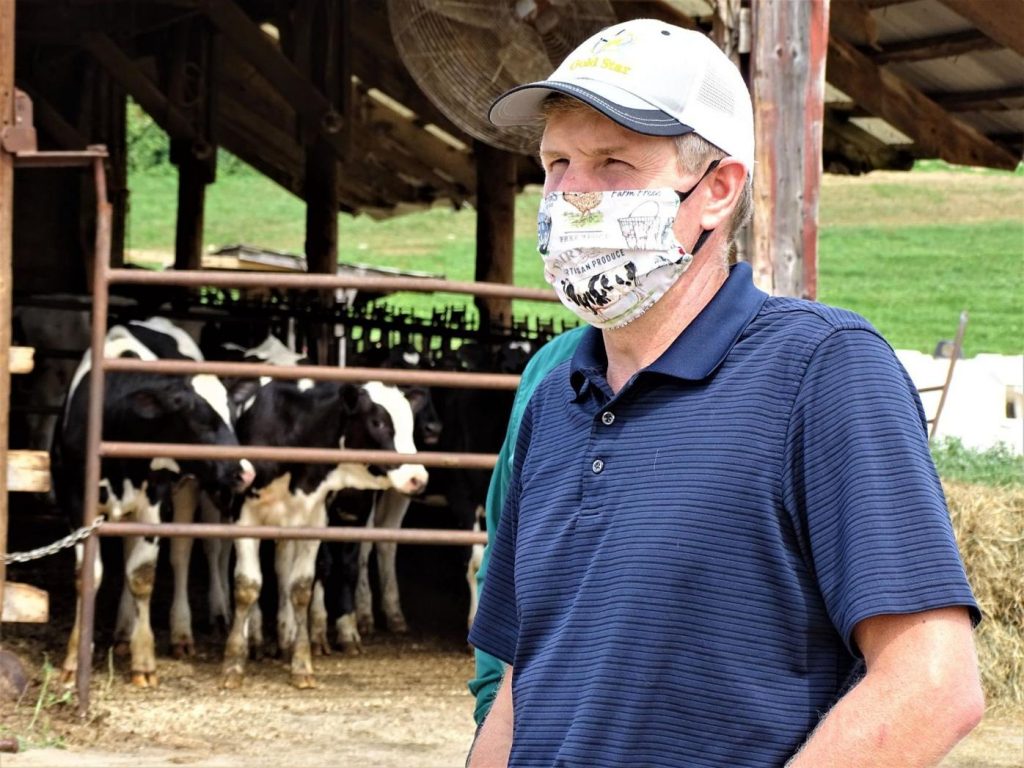
Scruton’s Dairy on Farmstead Road, which has between 175 and 180 Holstein cows, is is managed by Jason and Kerri Scruton, along with their son, Jacob.
The Scrutons talked with the Southeast Land Trust of New Hampshire for four years about a conservation easement, which restricts a property’s future development and protects its value in exchange for financial considerations.
Executive Director Brian Hart said the Southeast Land Trust does 15 to 18 projects a year, both easements and ownerships.
Jeremy Lougee, project manager for the Scruton’s Dairy conservation, said preserving the farm is important for the entire local ecosystem.
“There’s a lot of species that need these open fields and need this habitat,” Lougee said.
More than 120 private donors, The 1772 Foundation, The Great Bay Resource Protection Partnership, the state’s moose plate program and the New Hampshire Land and Community Heritage Investment Program helped make the conservation possible.
The Scrutons’ conservation, which was completed in June, comes at a critical time for the state’s farm industry.
The COVID-19 pandemic has presented major challenges, especially the shutdown of schools and restaurants, said Jason Scruton.
Although people were buying larger quantities of milk in supermarkets in March, that didn’t last long.
“We’ve seen a lot less demand for dairy products,” Jason Scruton said.
Kerri Scruton said that because of the way milk is priced, prices have stayed low since 2014. The family was hoping for a good year in 2020, but that is unlikely to happen now.
Dairy farmers also have been hurt during the pandemic because co-ops ordered a reduction in production, New Hampshire Agriculture Commissioner Shawn Jasper said.
In March, 19.2 million pounds of milk was shipped to co-ops. In June, that was down to 17.8 million pounds, Jasper said.
Jasper said the state is lucky none of its 79 private farms have gone out of business because of COVID-19’s economic impact. He said he hopes to get all $4.5 million in CARES Act money for dairy farmers into their hands by Dec. 30.
Jasper said many farm owners make the same decision as the Scrutons to conserve their land to try to preserve their way of life.
“Of course, if it doesn’t help them get to a profitable point, then down the road, they’re still out of business,” Jasper said.

























